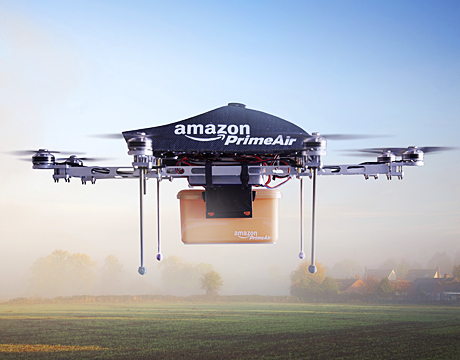Here are the next 5 sectors with the potential to propel the American/Global economy into the next decade...
6. Virtual reality (VR)
After the very high profile acquisition of VR headset maker Oculus for $2b by
Facebook, Oculus has since launched a mobile VR device with
Samsung. Almost at the same time of the acquisition,
Sony announced a VR device for its PS4 gaming console, named Project Morpheus. Google is also dabbling with VR by coming up with a low-cost, self assembled headset, Google Cardboard, as well as teaming up with
GoPro to create Jump, a 'spherical-video' camera. Nokia came up with a virtual reality camera for making immersive films, TV and games, while VR start-up
Jaunt received $65m from investors, including
Walt Disney. Apart from entertainment purposes, VR has numerous possibilities for uses in aerospace, education, manufacturing, and industries.
 |
| Facebook acquired VR headset maker, Oculus for $2b in March 2014 |
7. 3D printing
3D printing, aka additive manufacturing, is the next revolution in manufacturing; it will enable the personalized manufacturing of items from jewelry, aircraft parts, precision engineering, architecture, and medical devices at no minimum quantity. The production of prototypes can be done in a matter of days, reducing costs, increasing productivity, and opening opportunities for smaller companies.
Traditional supply chains will also be disrupted via
virtual warehousing, which means parts are digitally stored and manufactured only on demand, replacing the current approach of storing thousands of physical parts in warehouses. Witness the shift to the
Long Tail, or from mass production to made-on-demand customization. However, the technology has yet to achieve high speeds and quality, which could explain its slow rate of mainstream adoption.
Recently, listed 3D printers such as
Stratasys and
3D systems have gone into a slump. This is possibly due to the weight of expectations pressuring the companies into spending more, leading to a contraction in their margins. Likely a long term investment opportunity if 3D printing achieves mainstream acceptance as it has been touted to.
HP Inc, the hardware segment of HP, is also making its foray into the industry via their Multi Jet Fusion machines by end 2016.
 |
| 3D printing: print yourself...or anything! |
8. Robotics
Robotics include drones, automation, and Artificial Intelligence (AI). There is reason to be concerned: an
Oxford study predicted that 47% of all employment in the US is likely to be automated by 2030; Scientists, researchers, and academics, including Elon Musk and Stephen Hawking, have warned that your Hollywood movie of an AI arms race might come true if autonomous weapons are developed. For less innocuous uses, count on the usual suspects like Apple, Google, Amazon, Microsoft and Facebook to develop machines that chat with you, or drones to deliver your parcel. Google in 2014 paid more than $500m to acquire AI startup DeepMind in the UK. The latest is that Apple bought 2 AI companies in 4 days, snapping up Perceptio, an image recognition technology for smartphones, and VocalIQ, a UK based startup with technology to help computers understand human speech.
 |
| The Amazon drone delivering your parcel |
9. Fintech
Financial technology, or Fintech, is making the Banks sweat. Ranging from peer-to-peer foreign exchange/lending/funding, to online payments, to the Bitcoin/Blockchain, fintech startups are picking off the most lucrative parts of the banks' relationships with customers, leaving them as just dumb providers of capital. Apart from the listed
Paypal, here is a
list of fintech startups to watch. In this list,
Square is due to IPO by the end 2015.
And of course, the Bitcoin, or its underlying Blockchain technology (distributed record of any bitcoin transaction ever traded), cannot be ignored after it was announced that 22 major banks have invested in New York fintech firm
R3 to create a framework for Blockchain technology in markets; and that Blythe Masters, former head of commodities at JP Morgan, joined
Digital Asset Holdings to design software that can make financial transactions more efficient with blockchain technology. More on Bitcoin/Blockchain in another post.
10. Quantum computing
Quantum computing overcomes the limitations of today's computers by applying quantum mechanics to increase computing capacity significantly. Rather than the usual 1 and 0 bits, the qubits in a quantum computer can be in both states at the same time, massively increasing the number of possibilities that can be analysed simultaneously. This means optimising large volumes of data, making advances in AI, where computers can be taught to solve problems and understand language, pattern recognition, and financial analysis. Along with NASA, Google has been testing a system made by Canadian company,
D-wave Systems, which claims to have built the first working quantum computer.
 |
| The D-Wave quantum computer |
The usual suspects, Social Media, E-commerce, and the Apple/Android application ecosystem have already upended the traditional industries (mainstream media, retail) and will continue to grow and create jobs/value. Notably, Google is involved in 8 out of 10 of the above mentioned sectors!
No matter the state of the economy, we can be comforted that humans have always been able to progress through reinvention, innovation, and adaptability. Would appreciate hearing your thoughts, or if you could help add on to anything I might have missed!


